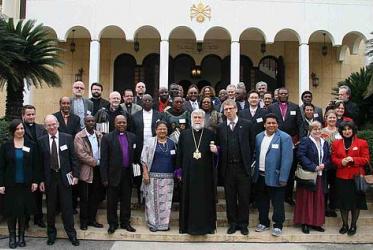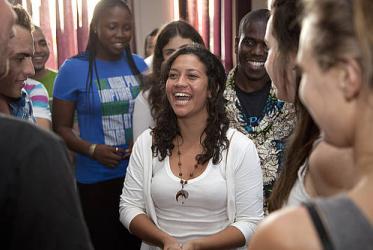Displaying 3121 - 3140 of 4375
Delegation from Taizé at WCC offices
14 March 2012
Churches say “No more violence in the name of God”
05 March 2012
Unity is God’s gift to the church, says Archbishop of Canterbury
28 February 2012
WCC consultation in Beirut explores conciliar ecumenism
16 February 2012
Churches pray for Christian unity
25 January 2012
Just peace, prayer and a common witness keep church relevant
22 December 2011
Youth promise active involvement for environmental justice
14 December 2011
Durban outcome is not enough, says WCC
13 December 2011







